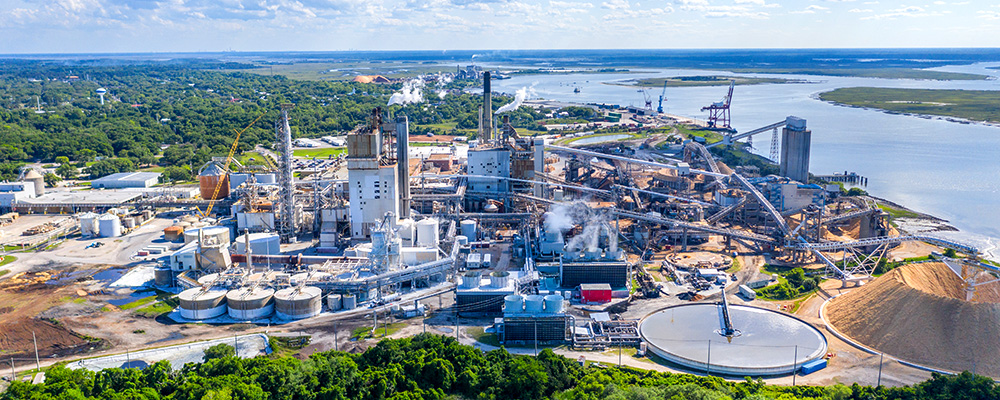Corrosion has long been a problem in the pulp and paper mill industry. Different corrosive environments facilities require different coating solutions. To make sure each area is protected, you need an upfront analysis to determine the proper coatings for your applications.
Types of corrosion in pulp and paper mills
Different types of corrosion have been identified in pulp and paper mills, including stress corrosion cracking, uniform corrosion, and crevice corrosion and pitting.
- Stress cracking is caused by a combination of material, mechanical stresses and environment. These cracks can spread and lead to catastrophic failure.
- Uniform corrosion can be caused by the presence of alkaline solutions and molten salts, where the passive layer that protects the metal breaks down across the entire surface.
- Crevice corrosion and pitting are similar to uniform corrosion, but limited to smaller areas.
The materials used in evaporation plants matter. Chemical pulp is produced by cooking wood chips in a digester with additives that dissolve the lignin and separate the wood fibers. The lignin and cooked chemicals form a black liquor. The extend of potential corrosion often depends on the elements in the black liquor, its additives, and chlorides in the system from the wood.
When the metals in the pulp and papers mills are exposed to black liquor and other corrosive substances, the metals are degraded and the metallic components return to their original, natural state. Corrosion can impact the metal’s mechanical strength, permeability to liquids and gasses, and appearance.
Preventing corrosion in pulp and paper mills
Pulp and paper mills need corrosion control in processing, production and finishing, as well as flooring and containment areas. Without corrosion protection, pulp and paper mills may end up with contaminated paper, damaged machinery and regulatory violations. The safety of workers is also a concern.
An analysis of the facility, including types of metal, chemicals and wood, will be used to determine the proper coatings for your applications. Surfaces first need to be properly prepared, then the correct coatings can be applied for each surface or application.
Hiring qualified contractors
Put FSN on your bid list today. Certified industrial coating professionals and certified contractors can provide site-specific evaluations, including advice on surface preparation and selection of coatings.
Our contractors provide a wide range of services, including:
- Inspections
- Evaluations
- Corrosion Control
- Fireproofing
- Industrial Coatings
- Epoxy Flooring
- Asbestos and Lead Abatement
Contact us today at (410) 564-5876 or sales@FinishingSolutionsNetwork.com to be connected with certified protective coatings contractors in your area.



